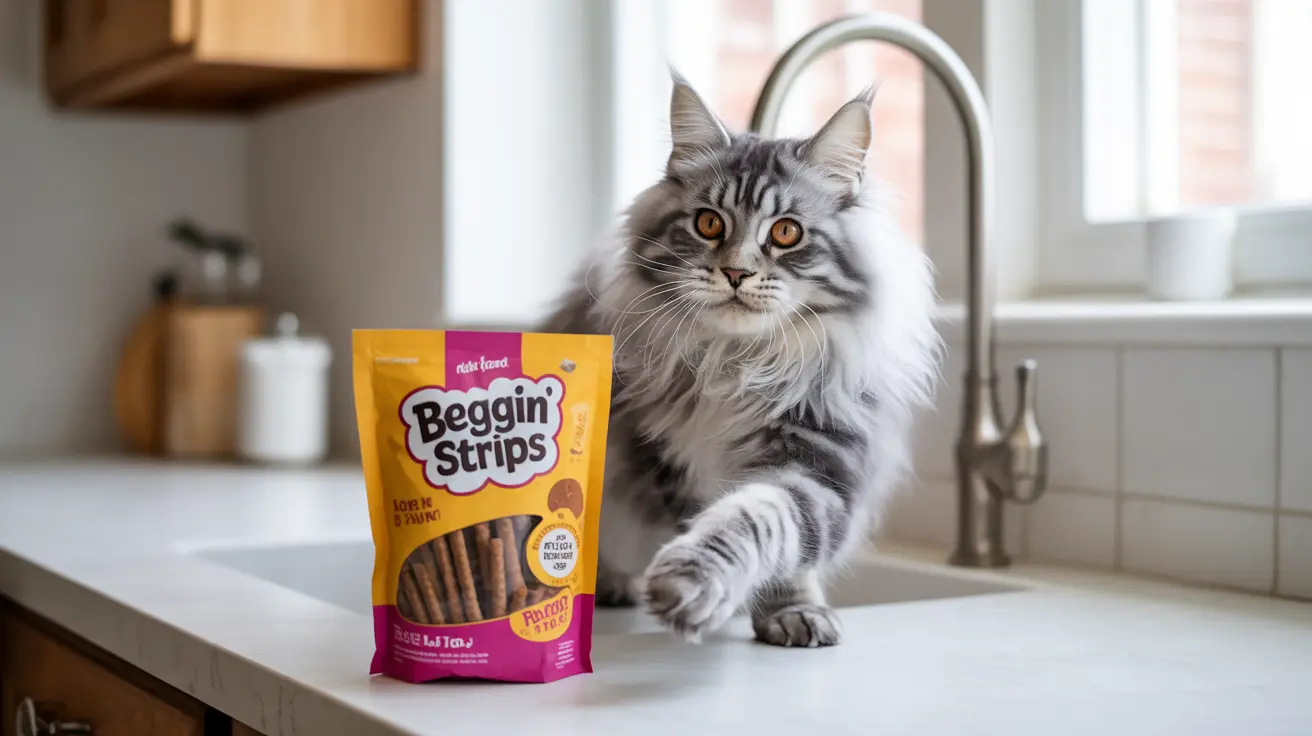If you're a pet parent to both cats and dogs, you might have wondered whether your feline friend can share in your dog's favorite treats - particularly those tempting Beggin' Strips. While these bacon-flavored treats might attract your cat's attention, it's crucial to understand why they're not a suitable choice for feline consumption.
In this comprehensive guide, we'll explore the potential risks of feeding Beggin' Strips to cats, examine the nutritional implications, and provide safe alternatives for treating your feline companion.
Understanding Feline Nutritional Needs vs. Beggin' Strips
Cats are obligate carnivores with specific dietary requirements that differ significantly from dogs. While dogs can handle a more varied diet, cats need high-protein, meat-based nutrition with essential nutrients like taurine that aren't typically found in dog treats.
Beggin' Strips are specifically formulated for canine consumption, containing ingredients that may be problematic for cats, including:
- High levels of carbohydrates and plant-based proteins
- Artificial preservatives and colors
- Lower protein content than cats require
- Added sugars and artificial flavors
Potential Health Risks for Cats
When cats consume Beggin' Strips, they may experience several adverse effects:
Short-Term Effects
- Digestive upset
- Vomiting
- Diarrhea
- Loss of appetite
Long-Term Concerns
- Nutritional deficiencies
- Weight gain
- Increased risk of diabetes
- Potential liver stress from artificial preservatives
Safe Treat Alternatives for Cats
Instead of Beggin' Strips, consider these cat-appropriate treats:
- Commercial cat treats formulated for feline nutrition
- Freeze-dried meat treats
- Small pieces of cooked chicken or fish
- Specially formulated dental treats for cats
When to Contact Your Veterinarian
If your cat has consumed Beggin' Strips, monitor them for any unusual symptoms. Contact your veterinarian immediately if you notice:
- Persistent vomiting or diarrhea
- Lethargy
- Loss of appetite
- Unusual behavior changes
Frequently Asked Questions
Can cats safely eat Beggin' Strips dog treats without health risks?
No, cats cannot safely eat Beggin' Strips. While a small amount isn't typically toxic, these treats contain ingredients unsuitable for feline digestion and nutrition.
Why are Beggin' Strips not recommended for cats despite their appealing bacon smell?
Beggin' Strips are formulated for dogs' dietary needs, containing inappropriate levels of proteins, fats, and carbohydrates for cats. The artificial flavors and preservatives can also cause digestive issues in cats.
What ingredients in Beggin' Strips are harmful or unsuitable for feline digestion?
Key problematic ingredients include artificial preservatives (BHA), artificial colors, high carbohydrate content, and plant-based proteins that cats cannot properly digest.
What are the potential short-term and long-term health effects if a cat eats Beggin' Strips?
Short-term effects include digestive upset, while long-term consumption could lead to nutritional deficiencies, obesity, and increased risk of diabetes or liver problems.
What are better treat alternatives designed specifically for cats compared to dog treats like Beggin' Strips?
Better alternatives include commercial cat treats, freeze-dried meat treats, small pieces of cooked lean meat, and specially formulated feline dental treats that meet cats' nutritional needs.
Remember, while Beggin' Strips might seem tempting to your cat, it's essential to stick to treats specifically formulated for feline consumption. This ensures your cat receives appropriate nutrition while avoiding potential health risks associated with consuming dog treats.






